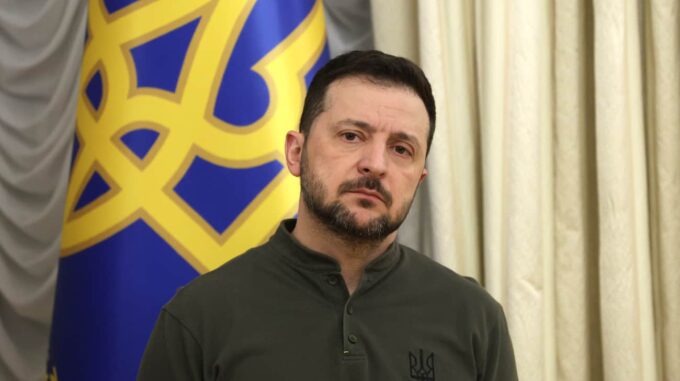Zelensky handed over to the President of South Africa a list of 400 Ukrainian children kidnapped by Russia

At a crucial moment of diplomatic communication on April 24, Ukrainian President Volodymyr Zelensky took an important step toward international support in the effort to rescue Ukrainian children unlawfully taken by Russia from temporarily occupied territories. During a joint press conference with the leader of the Republic of South Africa, Cyril Ramaphosa, the Ukrainian president presented him with an official list of 400 children who were abducted from Ukrainian regions under enemy control. According to Zelensky, this list is part of a larger and systematic effort by Ukrainian authorities to return kidnapped and missing children. In his speech, the Ukrainian leader emphasized: "Children are currently being held against their will in Russia, and this situation is one of the most painful in our war. For several years, Russian occupiers have unlawfully held tens of thousands of our young ones hostage, many of whom were abducted from Ukraine's temporarily occupied territories. We must do everything possible to return each of these children home. This is as important as freeing our prisoners, both military and civilian, who have been held in inhumane conditions in Russian prisons for years." The head of Ukraine also highlighted the role of South Africa within this cross-time coalition, which has long been working on the issue of returning abducted Ukrainian children. According to Zelensky, South Africa is a co-leader in the international effort to free and reintegrate Ukrainian minors, and he personally hopes for active assistance from his South African colleague to achieve this goal. What preceded this important diplomatic initiative? On the eve, after a large-scale Russian attack on Ukrainian territories—once again confirming Moscow's aggressive impulses—Zelensky had to cancel part of his planned visit to South Africa. The president swiftly returned to Ukraine to pursue priority state tasks, including intensifying efforts to protect Ukrainian citizens and reaching out to Western partners to strengthen air defense (AD) systems. According to sources in the press service, Defense Minister Rustem Umerov was tasked with reminding Western countries of the importance of additional deliveries of AD systems necessary to protect Ukrainian skies and citizens. This situation once again confirms how complex and multifaceted Ukraine's current defense and humanitarian policies are in facing Russian aggression. Not only is immediate military defense on the agenda, but also efforts to return kidnapped and missing children, victims of Putin's destructive policies. International support is also vital, especially from partners like South Africa, who not only loudly declare their solidarity but also actively assist in the search for and return of Ukrainian citizens. In this context, the transfer of a list of 400 children is not just a diplomatic gesture but a demonstration of the importance of international cooperation, without which—besides military efforts—there is a risk of neglecting a truly sensitive and human issue—the return of kidnapped children. It is a signal to the global community that Ukrainian authorities are committed to active actions and work diligently to protect the rights of their minors, especially those who have fallen victim to foreign aggression and abuse. From now on, world leaders must do not only support Ukraine in words but also actively assist in humanitarian and legal aspects of its fight to return Ukrainian children home. Such actions are a step toward healing and restoring the country, which is experiencing the most difficult period in its modern history.

